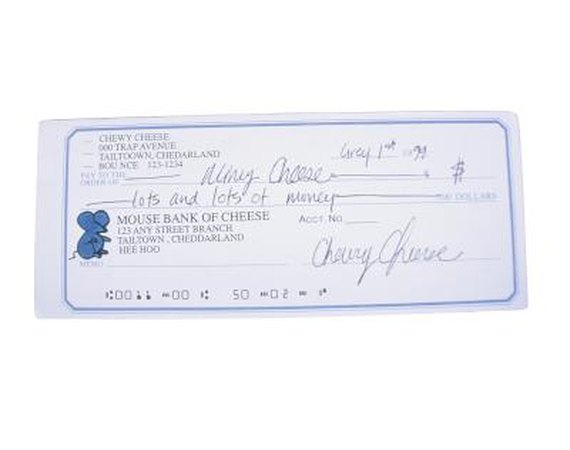Each person is entitled to an annual free report on his credit from each of the three main credit-reporting agencies: Experian, TransUnion and Equifax. Information about identifying information, credit history, public records and credit inquiries is included in the report of each agency. Although each of the three covers the same basic areas, their report formats differ. The information contained in the reports also varies based upon whether the creditor reports information to a particular agency. An important area to review is the aging history for each account found in the credit history section.
Instructions
Experian
- 1
Turn to the section of the credit report labeled "Credit Items" or "Accounts in Good Standing." Accounts that fall under either of these sections might contain information about payment history.
2Identify the "Account History" field in the middle section of each account.
3Read the statement in the "Account History." The statement lists every payment that was not made on time, and the number of days it was past due (using 30-day increments), as of the date the creditor provided information to the credit reporting agency. The length of the history period will vary by creditor, but it's generally the same length of time the account has been open.
TransUnion
- 4
Turn to the section of the credit report labeled "Adverse Accounts" or "Satisfactory Accounts." Accounts that fall under either of these sections can contain information about payment history.
5Identify the series of boxes with a month indicated underneath at the bottom of the account.
6Read the symbol in the box corresponding to a month. Each box will have a code in it. "OK" means the loan was current that month. If the payment was 30 days late that month, the box will contain "30." The same format is used to denote payments that were 60, 90 and 120 days late. The box will have an X if the payment status is unknown, and N/A if the status is not applicable. The number of boxes shown will vary by creditor, but it generally corresponds to the length of time the account has been open. A key is included in the "Account Information" tab.
Equifax
- 7
Turn to the section of the credit report with "Account Information." Accounts are placed under various subheadings depending upon type (mortgage account, revolving accounting, installment account.)
8Identify the "Payment History" table at the bottom of the account. The table lists every month in a year for the last seven years.
9Read the symbol in the box corresponding to a month. Each box has a code in it. A dot means the loan was current that month. If the payment was 30 days late in a given month, the box will contain "30." The same format is used to denote payments that were 60, 90, 120, 150 and 180 days late. Other codes include CA for collection account, "F for foreclosure and CO for charge-off. The payment history key is included in the credit report.























